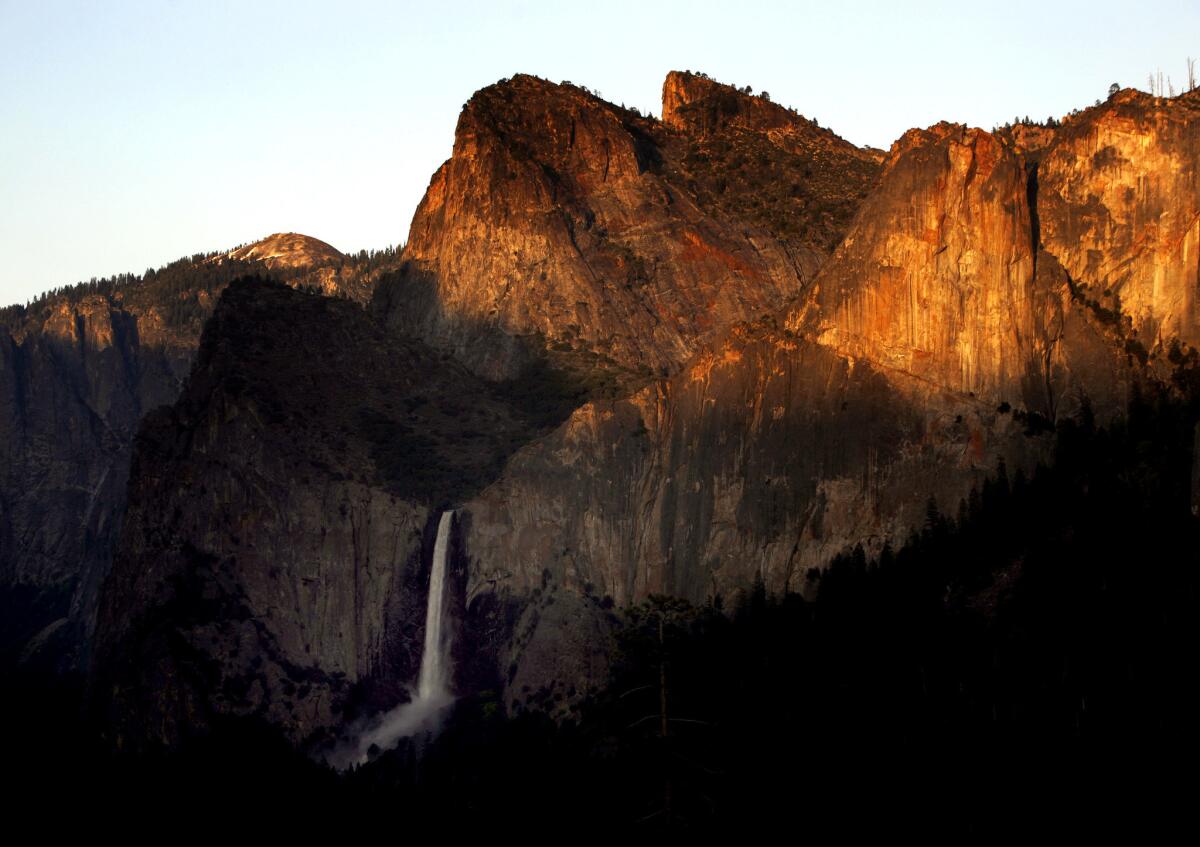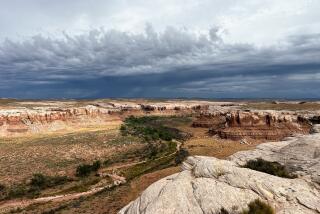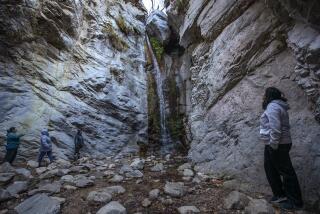Editorial: National parks and public lands needed a win. Congress finally gave them one

It is, in truth, a moment to savor. The House on Wednesday overwhelmingly approved a Senate-passed measure to spend $9.5 billion over five years on national parks, enough to clear out most of the nation’s $12 billion in deferred park maintenance projects. The bill would devote an additional $900 million a year to the Land and Water Conservation Fund to restore and add acreage to federal parks, national monuments and other public land holdings, as well as to provide matching grants for state and local governments’ park projects and similar work. The measure is still waiting for President Trump’s signature, but he has vowed to sign it.
So yes, Washington managed to work the way it is supposed to. Some conservatives — particularly westerners who think the federal government already controls too much land — dismiss the Great American Outdoors Act as a federal land grab, while others decry its impact on the federal deficit. On the other side, public lands proponents undoubtedly would have preferred a more expensive measure to address the entire maintenance backlog. But that’s what political compromise looks like — overcoming differences to advance the public good.
Editorial: Mitch McConnell is twiddling his thumbs as American workers head toward a financial cliff
The current recession would be much worse if Congress hadn’t provided higher cash benefits to millions of newly unemployed Americans.
Of course, it’s not all kumbaya. Some Republicans, in hopes of retaining control of the Senate in the November elections, backed the measure to help out Republican Sens. Cory Gardner of Colorado and Steve Daines of Montana, two proponents of the bill who face stiff reelection challenges. Democrats could have blocked the measure in a bit of election-year gamesmanship, but that would have been foolish given the broad support among Democrats for national parks and federal lands. Ultimately, the act passed with broad bipartisan support in both houses.
It’s dispiriting that such a legislative success is notable for its rarity, but we’ll focus on the positive. The measure devotes long-overdue spending to preserve and improve our national parks through a wide range of projects, including repairing leaky water pipes, updating inadequate sewer systems, restoring hiking trails, improving roads and upgrading visitor service centers. Here in California, Yosemite National Park’s backlog totals $646 million, and Death Valley National Park’s backlog totals $129 million. And it’s no small consideration that projects under the Great American Outdoors Act could provide jobs at a time of staggeringly high unemployment due to the coronavirus pandemic.
Also, creating a permanent line of funding for the Land and Water Conservation Fund fulfills a too-long-delayed promise. Congress established the fund in 1964 and later designated revenues for it from offshore oil and gas drilling royalties. But Congress also has repeatedly siphoned off most of that money for other purposes; this measure should end that practice.
California has largely provided local school districts with vague guidance on dealing with COVID-19. Now is the time for strong, specific leadership.
But the funding source itself is problematic. Offshore drilling poses enhanced risks to the environment. In fact, an underwater blowout off Santa Barbara more than a half-century ago spewed 3 million gallons of crude oil into the ocean, despoiling up to 100 miles of coastline, killing mass amounts of wildlife and giving rise to the modern environmental movement. We oppose President Trump’s policies extending lease sales for offshore drilling in part because of that risk. So using federal royalties from offshore wells to support parks is at once poetic and ironic.
More broadly, as the world experiences increasing effects from climate change, we must wean ourselves from our reliance on fossil fuels for energy because of the vast amounts of carbon and other greenhouse gases they produce when burned. Again, the unavoidable irony — polluting the planet and feeding global warming produces revenues to help protect some of the natural expanses that those practices imperil. It is in the interest of humankind that this particular revenue source for the fund dry up as soon as possible, and we urge Congress and environmental advocates to find more elegant funding solutions for these vital projects.
But for the moment, this is good for the nation’s parks and public lands, and by extension for the American people. And it may be quixotic, but we hope that the two major factions in Washington see the passage of the Great American Outdoors Act as a blueprint for future progress in conducting the people’s business.
More to Read
A cure for the common opinion
Get thought-provoking perspectives with our weekly newsletter.
You may occasionally receive promotional content from the Los Angeles Times.












